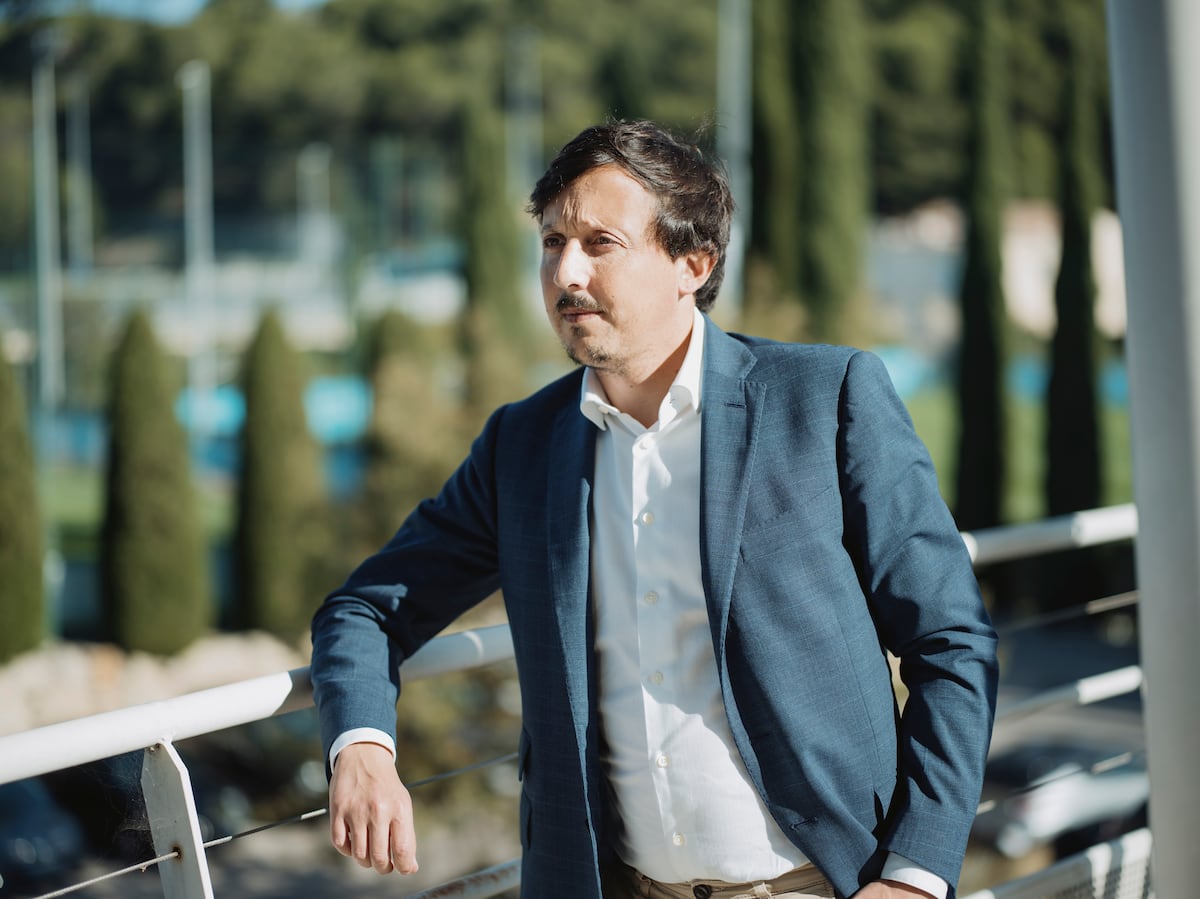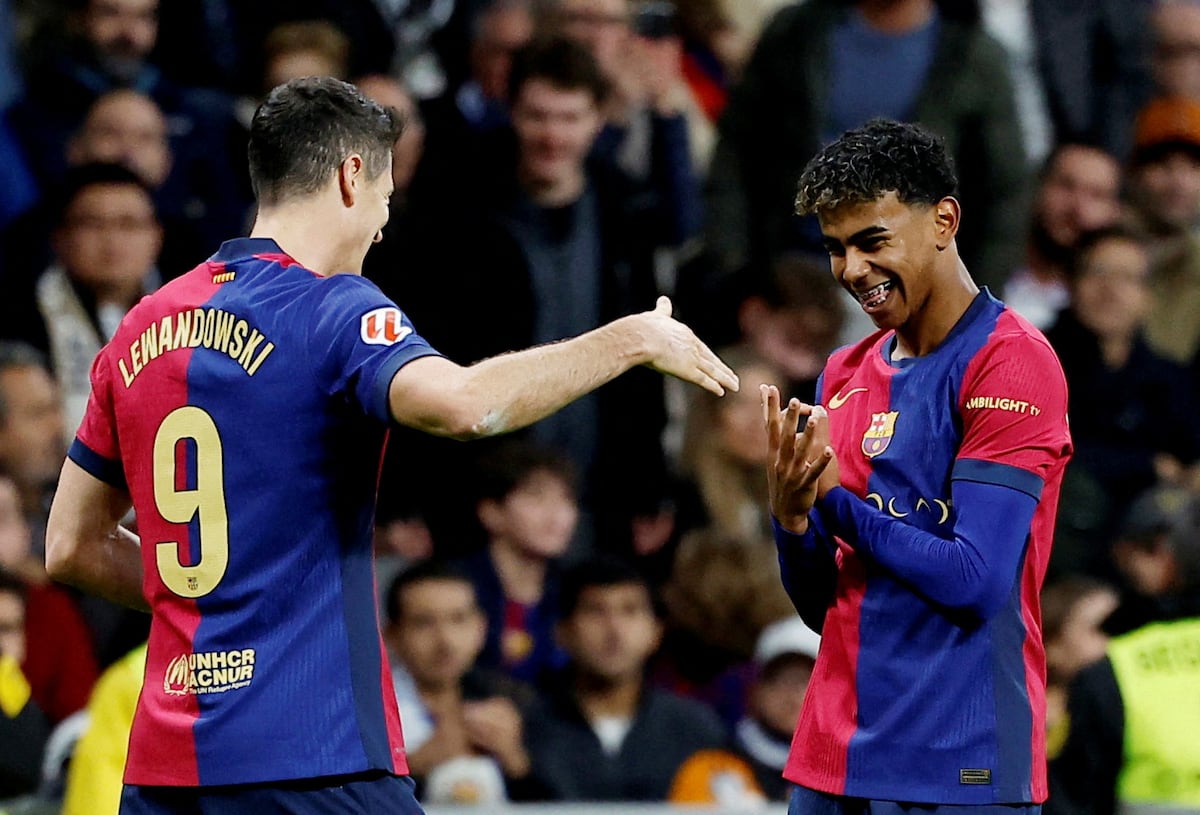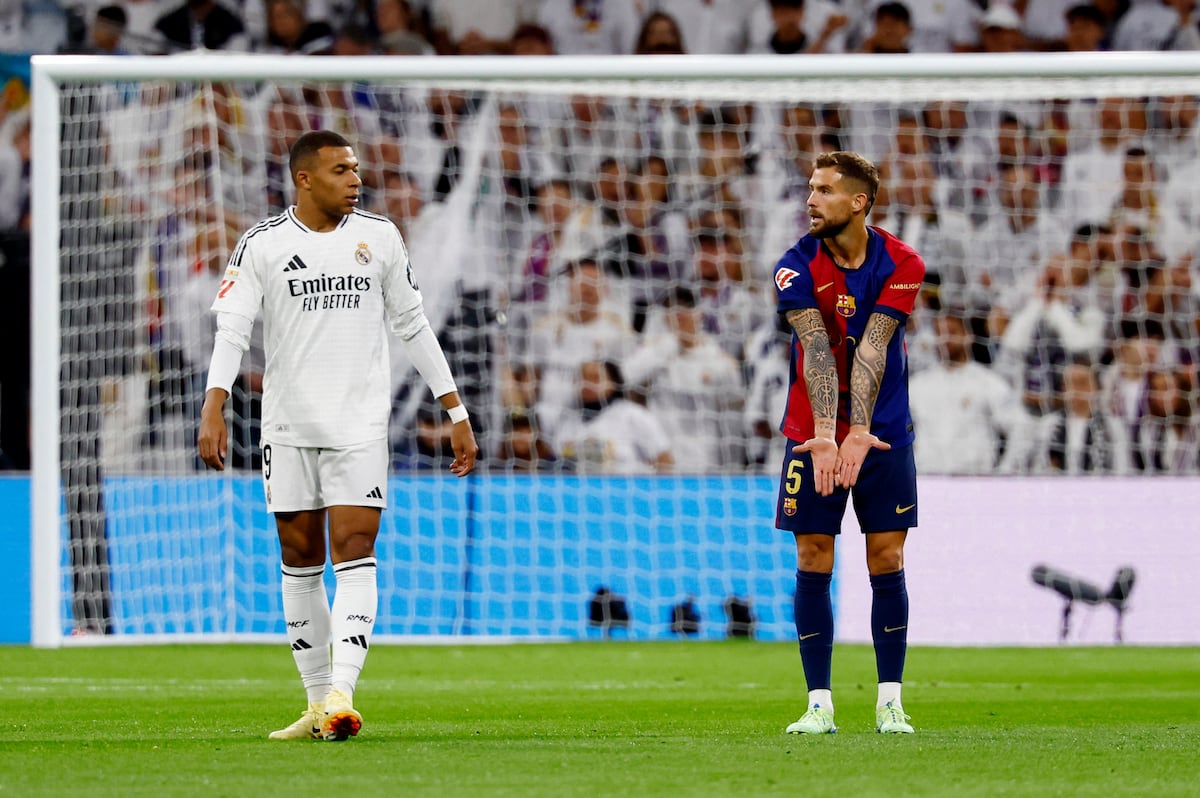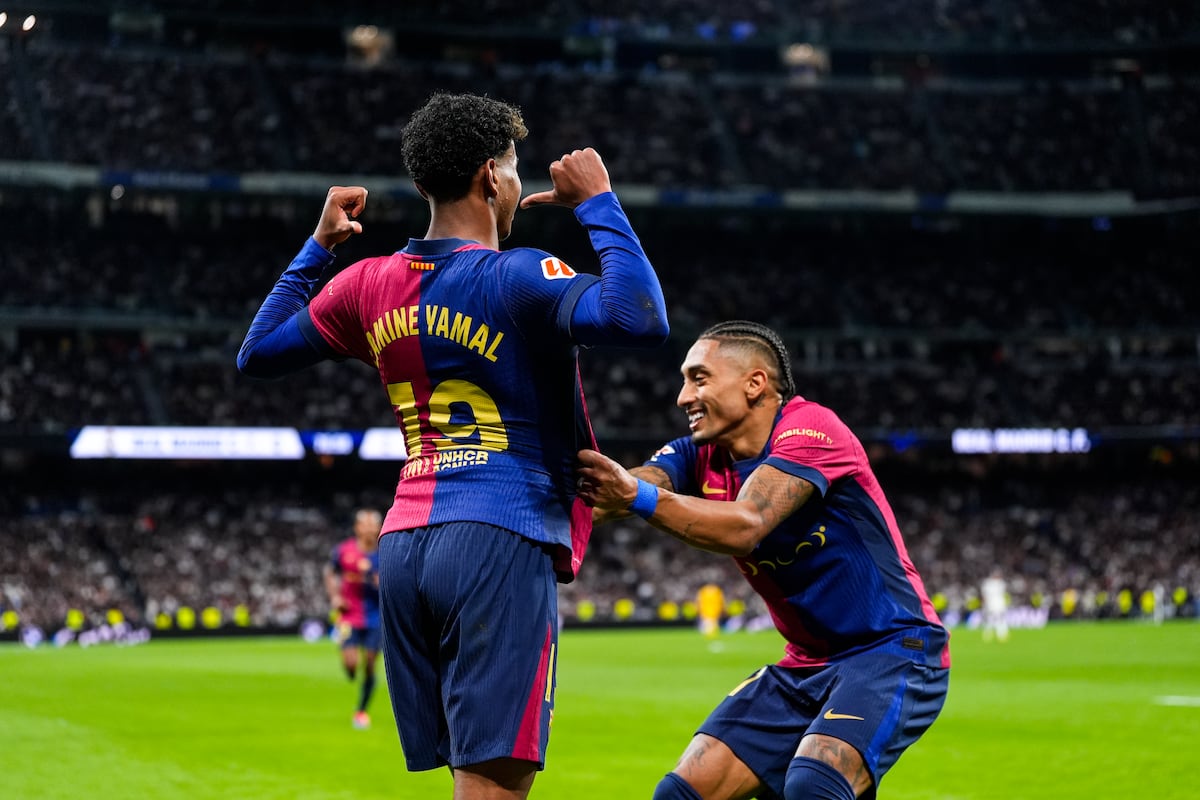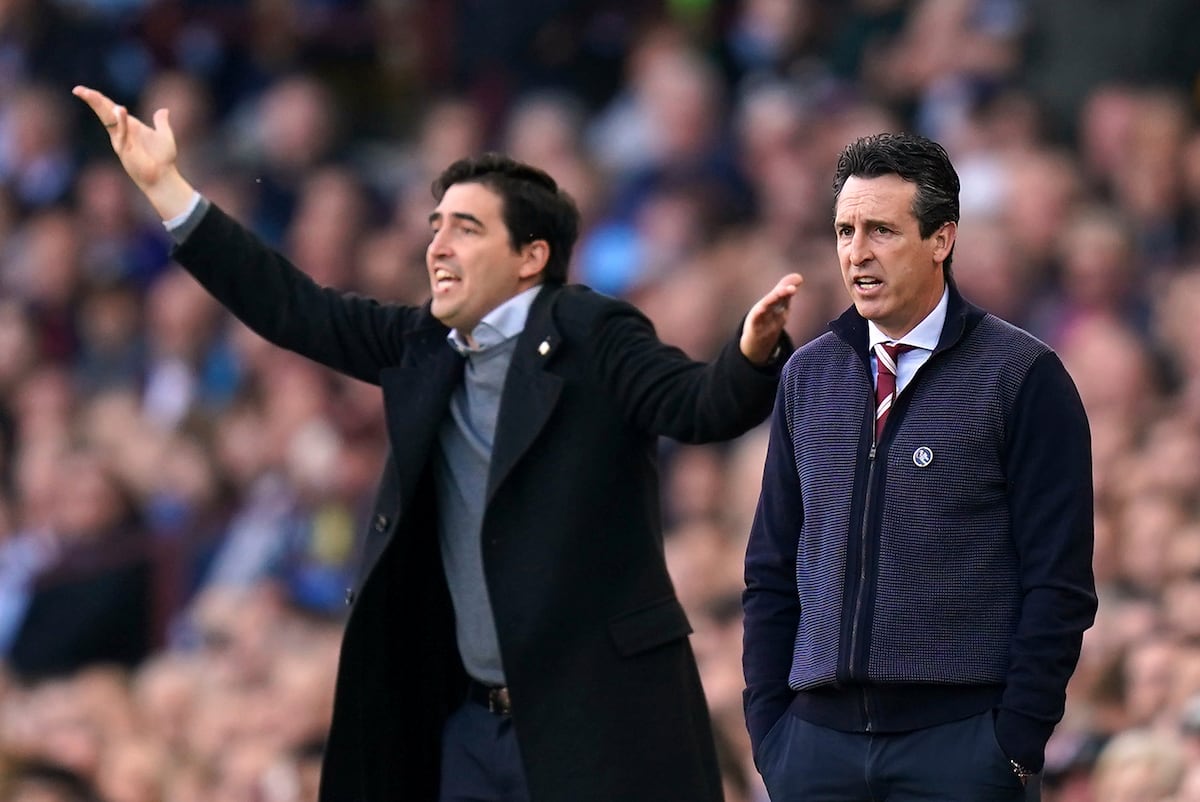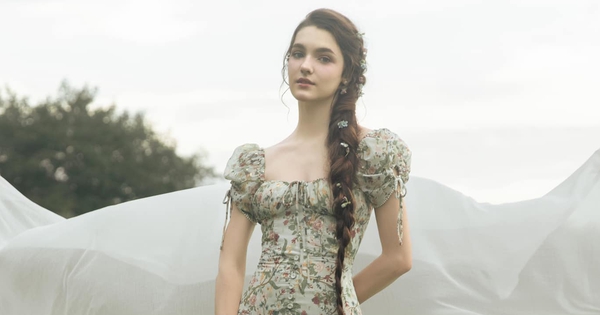Marseille is a complex, multicultural city and, at times, deeply wounded by its inequalities. A poor north and a rich south, whose differences dissolve almost solely into a kind of emotional catalyst for the city. The Velodrome, Olympique’s stadium, functions as an extraordinary free zone where all the faces of Marseille converge. Especially when the most important match of the year approaches, the Clásico, as the French also call it, which pits Olympique against PSG. An atavistic rivalry that, however, finds common points today in its football proposal, led by two adventurers like Luis Enrique and the Italian Roberto De Zerbi, who has given OM a choral and offensive game.
The person responsible for this revolution, to add more ingredients to the cocktail, is a young guy, from Oviedo, with a philosopher’s mustache and goatee who learned the trade—although it may sound strange—by playing as a sports director with PC Fútbol. A boy, then, with a special sensitivity for capturing talent in football who grew up as a scout in teams like Villarreal, Recreativo de Huelva or Newcastle, and established himself at Sassuolo or Juventus. In 2021, at the age of 34, Longoria went directly from the sports management of Olympique – owned by American tycoon Frank McCourt – to being the youngest president of a European football club. “Of course, playing PC Football and those games for hours influenced me,” he remembers sitting in his office, where the training fields of the OM sports city shine through the windows.
Longoria’s test tube finds a good thermometer this Sunday in the match against PSG. The football of both teams today refutes the old idea of anarchic and athletic football in the French league, with tight command positions in the classification, which are shared between both teams and Monaco. “The tactical level has increased greatly in recent years and the quality of the spectacle is superior to that of other leagues in Europe. You have to live it to understand it,” he explains. “There is still a feeling here that you can play football all day. The system allows local, neighborhood, grassroots football to be a part of training. The freedom that the player still has to try certain actions makes that talent exploit more than in countries like Spain, where everything is structured around the game,” he insists in his office in the sports city, from where you can see the employees cutting the grass of the training fields.
The figure of Longoria also embodies a certain exoticism in Marseille. A 38-year-old man from Oviedo presiding over an almost tribal club like OM? “The city accepts it because Marseille is made up of many nationalities and the search for balance. And that openness is part of his way of being,” he points out. But also a volcanic and cyclothymic personality, difficult to control when things are not going well. Last year the club finished eighth, away from European competitions. And, above all, what Longoria had planned. Four different coaches and a disappointment in the stands that is difficult to manage.
He had to change radically and look for income (the deficit has been drastically reduced and sponsorship income has increased by 70% since his arrival). Also look for a new project. “The idea was to provide stability through a coach who would establish a very clear plan with football at the center,” he explains, interrupting his sentences with silence and sometimes mixing Spanish and Italian. “And at the same time it is a question of culture and values around the team, from the owner to the last employee. Last year perhaps there was a more short-term vision, of trying to qualify for the Champions League, and we went towards that player profile that could give us that, but there was a distancing. The level of identification between the club and what we saw on the field did not fit.”
The response to the crisis, with confrontation included with the ultras, was the Italian Roberto De Zerbi: one of the most coveted and innovative coaches in Europe, pointed out by Pep Guardiola as one of the greats, who had had a good season with Brighton . But the Brescia coach demanded a certain work environment and trust. “De Zerbi was already countercultural in Italy or England. But it is like that because it has a strong identity, and also a component of genius. As a club we have to create the cultivation field for them so that they can express themselves with total freedom. In the summer of 2022 we already thought about him and he had offers from many European clubs.” Longoria began to think about it and after a five-hour video call – we talked about why we like football and Marseille – she managed to convince him.
Olympique is a strange animal in football. In many aspects it is similar to Naples, although its president prefers to compare it to Boca Juniors or Roma, “because of the passion of the environment.” But it is the only club in the city and the sporting reference for almost all families. “The club is part of the city, and that is perhaps difficult to understand in Spanish cities, where there are generally two or more teams. Here the second sports team is ice hockey. The Olympique engulfs so many phenomena here, but also sporting interest: it is like another member in many families. You may or may not like football, but almost everyone has a relationship with it. And that cannot be created, but it is your responsibility to feed it. As? symbolic links. For example, we run a campaign in which when a child is born they always receive a piece of clothing from the team, so that every Marseillais belongs to Olympique from day one. Or the initiatives to rehabilitate fields.”
Marseille (861,635 inhabitants) is the second most populated city in France, but it is also the place where some of the poorest neighborhoods in the country intermingle. There is a certain class pride in the football fight against the capital that is experienced in a unique way at the Vélodrome. “There are few games in Europe that generate so much passion. It’s that feeling of belonging for the Marseilles, it’s playing at home against the capital. And it’s part of your DNA, because you can make your people proud. And on a sporting level, of course, it is a match that can leave us at the top of the standings.” Also consolidate Longoria as one of the great managers of European football.

